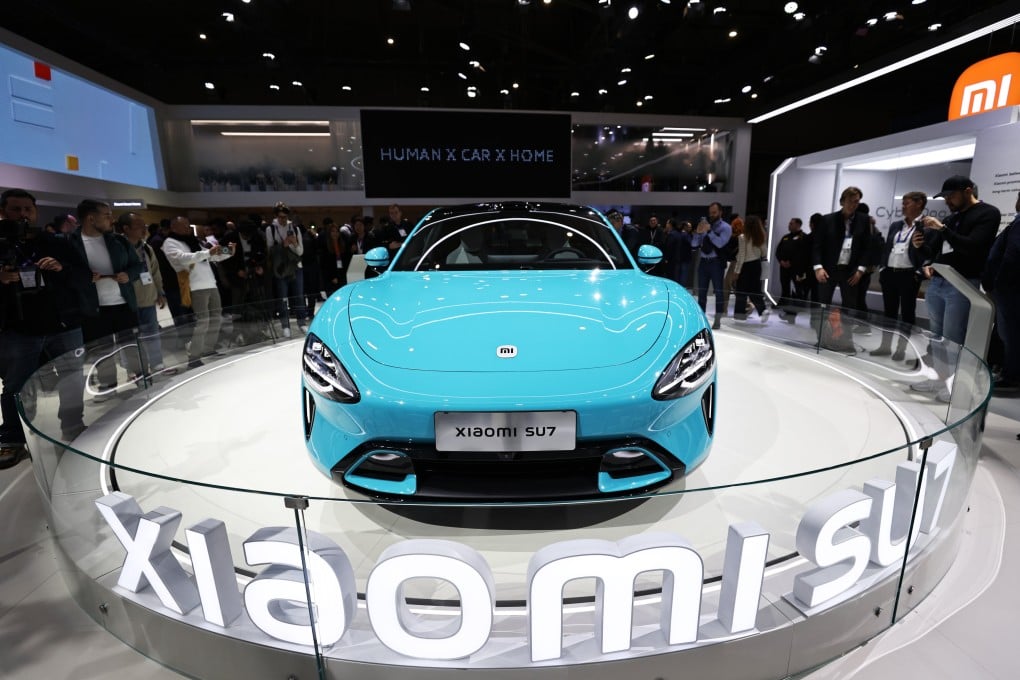China EVs: Xiaomi to deliver highly anticipated SU7 from month-end as it takes on Tesla, BYD amid raging price war
- The Chinese smartphone maker, which has started taking orders for its maiden EV model, expects to deliver them from March 28
- The company has not announced the pricing for the SU7, but estimates range from 200,000 yuan (US$27,865) to 370,000 yuan

The Beijing-based company said on Tuesday orders could be placed immediately, but it did not unveil prices of the long-awaited sedan.
The SU7, fitted with intelligent features such as an autonomous driving system and digital cockpit, is on display at 59 showrooms in 29 cities across China, according to a post on the microblogging site Weibo.
The SU7 goes on sale three years after Xiaomi ventured into EVs to diversify its business. Founder and CEO Lei Jun unveiled details of the car in December, expressing his ambitions of building a dream vehicle on par with Tesla for mainland Chinese consumers.
Xiaomi said the SU7 has sports-car level performance, which is powered by its self-developed HyperEngine electric motor that produces up to 21,000 revolutions per minute. It uses batteries from China’s Contemporary Amperex Technology, offering a driving range of up to 800 kilometres.
